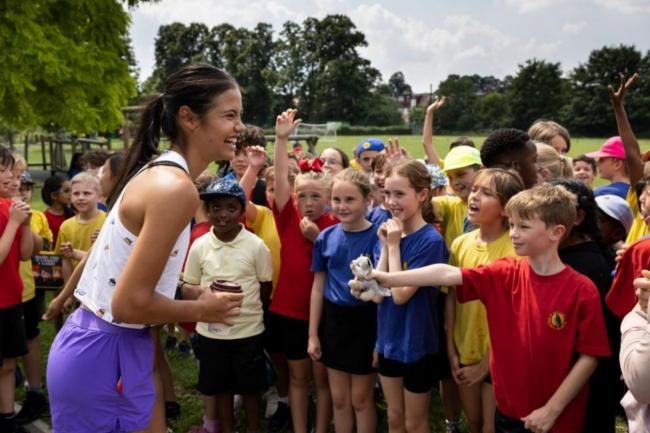
Teens, Tennis, the Taliban, and our Global Citizen Future.
Teens, Tennis, the Taliban, and our Global Citizen Future. https://www.citizenme.com/wp-content/uploads/2021/09/raducanu.jpg 650 433 StJohn Deakins StJohn Deakins https://secure.gravatar.com/avatar/67e7ca4885d1b922783ca3a83741a282?s=96&d=mm&r=gWatching the US Open Tennis finals last night was to witness a change in epoch. Two teenage girls played sublime tennis to break through on one of the world’s biggest sporting stages. It marked what Martina Navratilova called a ‘changing of the guard’ moment in women’s tennis.
But as they gave their composed acceptance speeches in front of the adoring 25,000 crowd, I found myself wishing they’d been able to articulate so much more. The moment reaches far beyond tennis.
Why? Because that match was incredibly symbolic.
Beyond Tennis
Yesterday was 9/11, and twenty years to the day since the twin towers of the NY World Trade Center were brought down by commuter planes loaded with people and jet fuel. The world’s most dramatic and horrific act of terror. Soon after, the Taliban, who had harboured the terrorists in Afghanistan, were ousted from power.
In the subsequent 20 years, Afghan girls, the age of our new tennis superstars, have been given access to education and civic participation; a fundamental human right for any civilised Citizenship.
In the last month, the Taliban have returned to Afghanistan and those same rights and freedoms will be taken away from millions of girls. They’re unlikely to be allowed to play sports, like tennis, let alone follow a chosen career, or have their voices heard about the future of the society that they live in.
Global, Digital Citizens
Yesterday’s tennis finalists represent more than their home countries, the UK and Canada. They are Global Citizens with parents from the Philippines, Ecuador, China, and Romania. The winner, Raducanu, hails from London, arguably one of the world’s two truly global cities; the other being New York, where the US Open finals took place this weekend.
9/11 happened 20 years ago, just before these new teenage tennis stars were born, and they will probably be on the international stage for the next 20 years. What can we hope for over the next two decades?
From Zoom calls replacing meeting rooms, to QR code shopping – our social, shopping, commercial, work, and entertainment worlds are all primarily digitised, and the Covid pandemic has accelerated this. We are now a world of connected Digital Citizens. As our online and ‘real-life’ worlds merge, ‘digital’ is disappearing. Children born today will grow through their teens with today’s digital technologies even more deeply embedded in their lives, to the point where they become invisible.
As a global digital society, we will require common and enforceable human and digital rights. Rights to transparency, choice, civic participation, and a fair share of the value we all create.
The Next 20 Years
So, as we look towards the next 20 years, a world where we are all digitally connected, surely we must strive for a more inclusive global society? We mustn’t forget the girls of Afghanistan and any others like them around the world. A true measure of a successful digital civic society will be how free we can enable people to be in real life too, and how sustainably we can collectively grow.
We are now one Global Citizenry living on one planet. It is time for us all to take care of them both, together.
- Posted In:
- Business blog
- Citizen blog
StJohn Deakins
StJohn founded CitizenMe with the aim to take on the biggest challenge in the Information Age: helping digital citizens gain control of their digital identity. Personal data has meaning and value to everyone, but there is an absence of digital tools to help people realise its value. With CitizenMe, StJohn aims to fix that. With a depth of experience digitising and mobilising businesses, StJohn aims for positive change in the personal information economy. Oh… and he loves liquorice.
All stories by: StJohn Deakins

